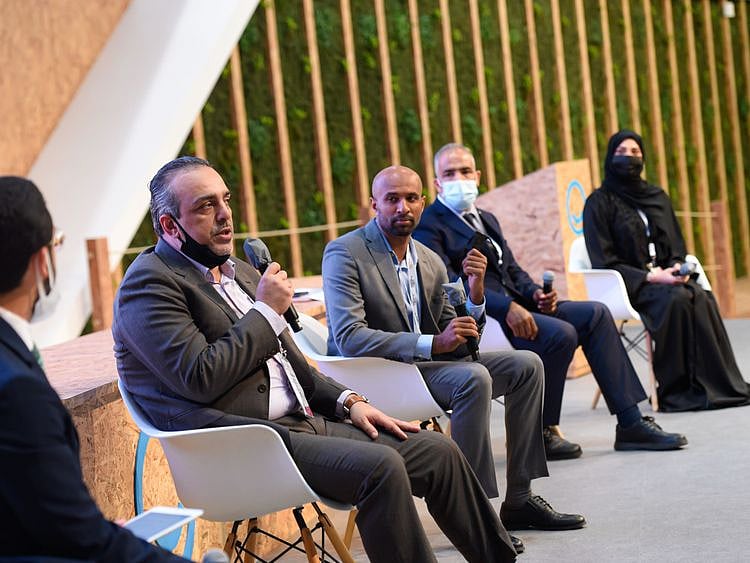Future of work discussed at Gitex Technology Week
AI, robotics and digitisation to accelerate change in the job market

Dubai: When people talk about AI (Artificial intelligence), robotics and digitisation, the discussion should not only focus on jobs being phased out but how people can adapt to changes and secure employment in the future.
This was discussed on Monday at one of the forums in the ongoing 40th annual Gitex Technology Week, taking place at the Dubai World Trade Centre. Experts from the government and private sector shared their insights on the future of work and how technologies accelerate the pace of change.
Tarek Saeed, Chief Technology Officer — Data and AI at IBM, noted 100 per cent of jobs are directly and indirectly affected by AI. “But it’s not just about erosion of jobs; AI also augment jobs. There has to be a concerted effort by society to help re-skill people to learn new work skills,” he said. “There is not a choice anymore. Due to stiff competition, if you do not adapt, you will be left behind.”
Many jobs could be phased out but new ones will be created. The solution is how workers will develop their existing skill sets or acquire new ones, he added.
Digital solopreneurship
Another speaker talked about solopreneurship or being your own boss. Nido Abdo, business growth consultant, explained this is work wherever you are and not limiting oneself to work for one company but for several companies. He noted solopreneurship, which is actually not a new model, has become more popular due to the COVID-19 pandemic. “COVID-19 has made jobs vulnerable but it has also gave rise to people looking for supplemental income and this has led people to become entrepreneurs themselves,” he added.
These people have used technology to promote own businesses or work with other on various projects, thus giving rise to digital solopreneurship.
Abdo, however, cautioned that starting a business is not always easy and fun. “There is massive competition, so you have to understand the market and know what makes you different. The hard part is how to find the discipline to run the business — one has to be committed and relentless in this,” he stressed.
COVID changes
Yousef Al Assaf, President of Rochester Institute of Technology — Dubai, also talked about how the pandemic has swiftly changed the academe. “Before COVID-19, we had already been talking about blended learning but some faculty members showed resistance to it. But now, the pandemic has forced everyone to adopt technology fast,” he shared.
Al Assaf said schools are no longer about classrooms and buildings. Technology has made education borderless and the next innovation is how to provide bespoke or tailor-made education — meaning students can pick and choose what skills or knowledge they need to improve their employability in the future.
Engaging Emirati talents
Meanwhile, in the same forum, Huda Al Awar, HR specialist at Dubai Government Human Resources Department (DGHR) talked about Khbrati, a freelancing platform for Emiratis. Al Awar noted Khbrati is made for Emiratis looking for self-employment. The digital platform is aimed at highlighting skilled, talented and creative UAE citizens. It allows public and private agencies to easily access available Emirati talents.
Sign up for the Daily Briefing
Get the latest news and updates straight to your inbox
Network Links
GN StoreDownload our app
© Al Nisr Publishing LLC 2026. All rights reserved.